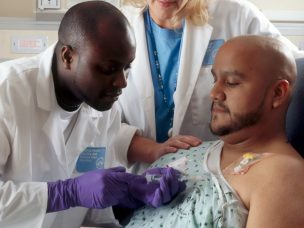This review details how analytics can be used to enhance the sharing of clinical trial data among researchers to inform cancer disparities research. Clinical trial recruits are often young, healthy, and from less racially diverse groups. This lack of diversity leads to a larger problem with racial minority groups and older adults not being accurately represented, making it difficult to apply study results to these groups. In hopes of rectifying this problem, Project Data Sphere (PDS) and RTI International have joined forces.
PDS is a centralized online platform for the cancer research community where researchers can share patient-level data from academic and industry phase III clinical trials. While PDS shares data that serve as a great resource to characterize current clinical trials, there are limitations. Data providers are required to de-identify patient social and demographic background information, which could be used to study underserved populations.
With the Medical Expenditure Panel Survey (MEPS), a primary source of nationally representative person-level data, the data profiles of individuals with cancer can now be statistically linked with those of similarly situated individuals to append measures of healthcare access, patient behaviors, and health conditions. This feature enhances the PDS resources, broadens its analytical capacity for clinical trial data, and supports its efforts in improving cancer disparities in underserved communities.
The researchers note that while cancer research continues to advance, millions of lives continue to be lost to cancer each year, especially among disadvantaged groups. Analytically enhanced integrated PDS data can enable researchers to explore socioeconomic factors of healthcare access in clinical trials to help rectify cancer disparities [1].
Source:
[1] Cohen, S. B., Unangst, J., & Yu, F. (2020). Enhancing the analytic utility of clinical trial data to inform health disparities research. Contemporary Clinical Trials Communications, 20, 100677. https://doi.org/10.1016/j.conctc.2020.100677










